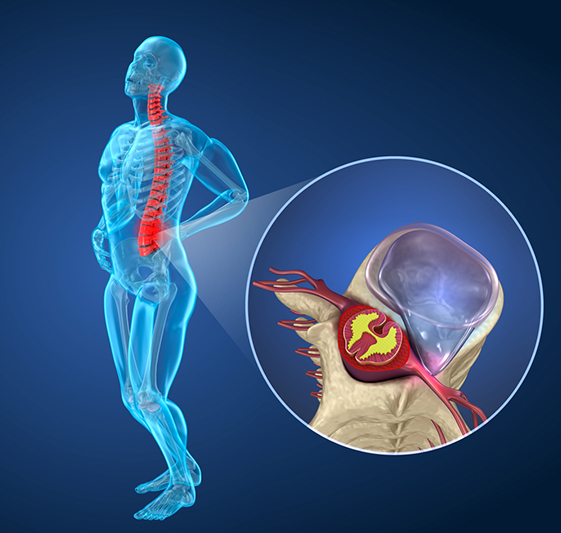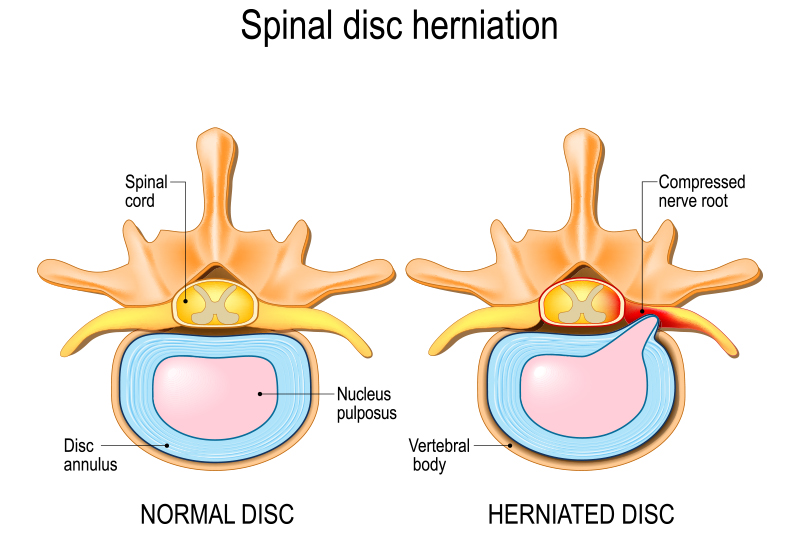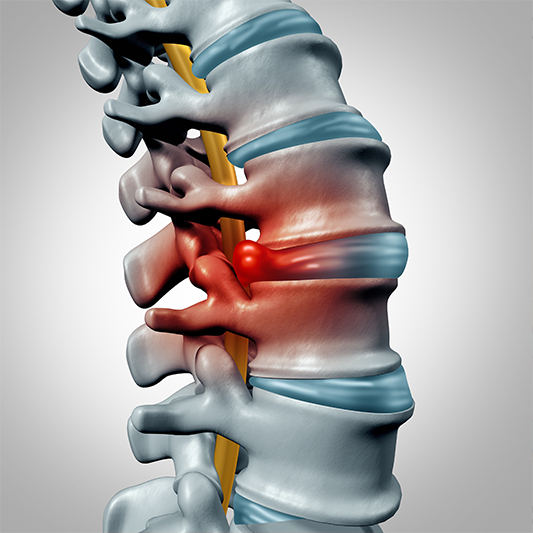Lumbar Radiculopathy in Beverly Hills
What is Lumbar Radiculopathy?
Radiculopathy is commonly referred to as a “pinched nerve” in the spine. When a nerve in the lumbar or sacral spine (low back) is compressed, it can result in a range of uncomfortable symptoms (neuropathy) in the lower back or legs that may include numbness, pain, tingling, and weakness.

Causes of Lumbar Radiculopathy
The human spine is typically made up of 33 vertebrae (specialized bones) that protect the spinal cord from trauma or injury. The specific design of these bones allows for the different movements in each part of the spine. The spine is S-shaped to facilitate balance, shock absorption, and flexibility. Moreover, each vertebra is connected to the adjacent one by an intervertebral disc that acts like a joint so that the spine can bend and twist. This intervertebral disc also acts as a shock absorber.
Damage or injury to the intervertebral discs may cause irritation or compression of the nearby nerve roots. Depending on the nerve that is affected, one may experience symptoms in different areas of the legs.

Some of the conditions that may cause radiculopathy include:
- Disc herniations
- Osteophytes (bone spurs)
- Degenerative disc disease
- Lumbar facet arthropathy / spondylosis (spinal arthritis)
- Spinal tumors
- Compression fractures
- Scoliosis or other bone deformities.

Diagnosis and Treatment
The doctor will start by taking a detailed history and performing a thorough physical exam of the spine. Various diagnostic testing such as MRI, CT scans, or EMG (electromyography) may also be utilized. Combining the detailed exam, history and diagnostic testing will help the doctor diagnose the location, severity and underlying cause of the pain.
Depending on the severity and duration of the radiculopathy and associated neuropathy, doctors may recommend treatment using epidurals, regenerative medicine, or even surgery. In refractory cases your doctor may consider neuromodulation therapy using peripheral nerve stimulation or spinal cord stimulation to reduce the pain.
At Orthopedic Pain Institute, we will develop a highly specialized plan to treat your individualized needs. Schedule your consultation today to learn more about lumbar radiculopathy and lumbar disc herniations and how we can help you get back to what you love!


